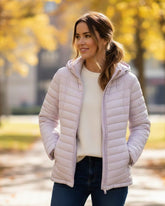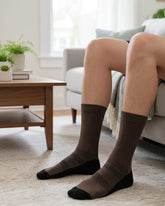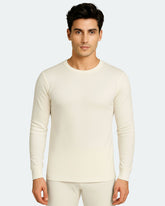What to Pack: Thermal Wear for Norway to Stay Warm and Stylish
What to Pack: Thermal Wear for Norway to Stay Warm and Stylish
If you are planning a trip to Norway, in winter, to experience wondrous Northern Lights or roam around the snow-covered towns, there is one dilemma that always comes in, regarding what exactly to wear to survive and thrive in this Arctic paradise, while looking Instagram-worthy.
Don’t worry, Kosha’s got your back (literally)!
In this blog, we have broken down everything you need, from thermal wear for Norway to essentials to pack for Norway in winter. Keep on reading for a stylish yet comfortable winter experience.
What is winter like in Norway?
To understand what winter is like in Norway, you must first understand where Norway is, which gives you a broader understanding of its weather. Norway is a part of the Nordic cluster of Northern Europe.
Winter activities in Norway
Norway has something for everybody. In Norway, there is skiing in the eastern parts of the country. More than that, a whale is watching from the Vesterålen coast. Apart from that, Aurora is hunting in Tromsø or the Lofoten Islands.
All in all, Norway is an adventure-lover’s dream.
Here are some famous winter activities in Norway:
-
Skiing
-
Snowboarding
-
Dog Sledding
-
Aurora Borealis Tours
-
Christmas Markets
-
Whale watching safaris
For all these activities, you need the best jackets for Norway winter.
Essentials to pack for Norway in winter
Well, the essentials for Norwegian winter typically include mastering the art of layering with the right base layer, mid-layer, and outer layer, alongside accessories. Kosha winter wear for Norway can help you be Norway-ready, and we have broken down those for you:
1. Base Layers
Base layers are your first line of defense. They protect you from external weather extremes while offering you a snug fit. The reasons why thermal wear for Norway is important because:
-
It helps you to regulate your body temperature.
-
Merino wool thermals for women layers wick away the moisture and are odor-resistant.
-
They offer you a seamless fit under jackets or sweaters.
Stay warm without sacrificing style—Kosha’s pastel blue merino wool thermal is the ultimate winter base layer for your Korean adventure.
Pro-tip: Go for merino wool or bamboo-blend base layers, but don’t go for cotton-based thermals as they trap in body moisture, making you feel rather cold.
2. Mid Layers
After putting on the right base layer, the mid-layer comes in. Your mid layer is important because it offers you the right amount of insulation, with comfort, and a touch of personalised style.
For Norwegian winters, go for mid-layers, which are:
-
Made from fabrics like those of Merino wool and acrylic.
-
Go for mid-layers that are stylish and reversible, making them truly versatile.
-
Perfect for varied temperatures and weather extremes.
3. The outer shell
The outer shell is supposed to protect you from all the things, be it snow, wind, or rain. Your outer shell should be:
-
Windproof
-
Water-resistant
-
Ideal for varied temperatures
-
Adjustable hoods and drawstrings
-
Versatile style
Go for Kosha’s winter jackets for men, and a Trench coat for women for the Norwegian winter.
Joy meets functionality—Kosha jackets for snowy destinations let you soak in winter magic without sacrificing comfort or style.
4. The Bottom Layer:
By bottom layer, we simply don’t mean denim or ripped jeans, but insulating, warm bottoms that keep you warm on the go. Here are some basic essentials to pack for Norway in winter:
-
Merino wool bottoms are both warm and ideal.
-
Kosha’s ski pants are perfect for adventurous activities.
5. Accessories to elevate your style
Accessories not only elevate your style but they offer you added comfort and warmth. Here are Kosha’s essentials to pack for Norway in winter:
Gloves: Gloves are important to keep your fingers warm on the go.
Smart layering begins with the right gear—these touch-enabled gloves are part of Kosha gear for winter vacations done right.
Scarves: They keep your neck warm while elevating your style.
Beanies: Beanies keep your ears warm while topping your look off with some style.
6. Warm feet on the go
Snow boots: Go for snow boots as these boots are insulating, and waterproof with a solid grip.
Woolen socks: Kosha’s woolen socks for women and men are a perfect choice for the Norwegian winter as they keep your feet warm on the go.
Why does Layering matter?
There is a reason why layering matters in Norway. To put it simply, layering is never optional; it’s always essential.
Here’s why layers are important:
- Base Layer: Men's Merino wool thermals wear for Norway is important because it traps heat while wicking away moisture.
- Mid-layer: It keeps you warm and helps you to personalise your style.
-
Outer Layer: It acts as an outer shell, shielding you from all the weather extremes, be it snow, rain, or wind.
Pro Tip: Add neon reflective bands and torches for safety, especially in areas like Tromsø or Lofoten during the Polar Night.
FAQs
1. What kind of coat do I need for Norway?
Choose an insulated, waterproof, and windproof parka no shorter than mid-thigh.
2. Are snow boots really necessary?
Sure, they are. Regular shoes just slide out. And no insulation. Get grip boots with height.
3. Should I wear thermal socks?
Absolutely! Men's Woolen Socks in India or thermal Woolen socks in India for Women are what keep your feet warm and dry.
4. Are gloves needed?
Yes. Gloves layered for warmth or insulated gloves block wind and frostbite.
5. Can a scarf and a hat be enough?
Yes—just make sure your beanie covers your ears and your scarf wraps snugly around your neck.
Winding Up
With its snow-covered fjords and breathtaking Aurora-lit skies, a winter vacation to Norway is an absolute dream.
However, it can also be uncomfortable if you don't have the proper equipment. You don’t have to choose between comfort and style when it comes to Kosha winter wear for Norway. Kosha's expertly designed winter apparel guarantees that you'll always stay warm.
For all of your winter necessities, stop by Kosha's flagship store in Khar (West), Mumbai, or their web store.

Ashwina Kakria
A girl who'll forever believe that novels are such mysterious and amorphous and tender things!
Editor’s Picks
Packable Puffer Jacket For Men
- ₹3,000.00
₹8,400.00- ₹3,000.00
- Unit price
- / per
Men's Full Sleeves Thermal | Merino Wool + Bamboo
- ₹3,040.00
₹7,600.00- ₹3,040.00
- Unit price
- / per
Alaskan Parka Jacket For Women - Slim Fit
- From ₹7,925.00
₹11,900.00- From ₹7,925.00
- Unit price
- / per
Lightweight Packable Puffer Jacket For Women
- ₹6,300.00
₹8,400.00- ₹6,300.00
- Unit price
- / per
Men's Merino Wool Cushioned Technical Socks
- ₹716.00
₹1,790.00- ₹716.00
- Unit price
- / per













